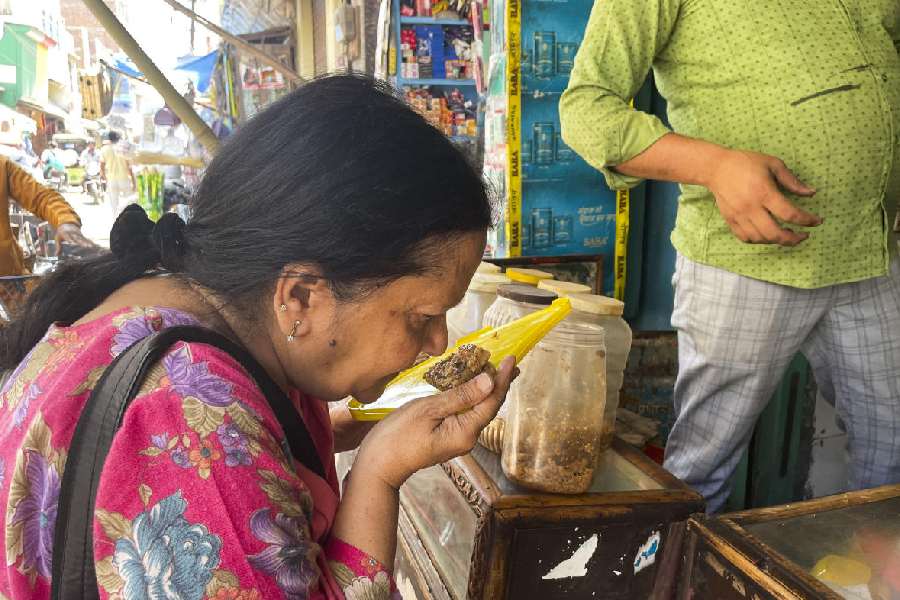Before one arrives at Hathras' famed 'hing' (asafoetida) market, the pungent smell of the condiment greets visitors, almost pinpointing the place.
As one gets to the market, a scene of disrepair takes over -- roads riddled with potholes and littered with debris, and congested lanes dotted with dilapidated houses.
For local traders and residents, these are physical manifestations of the government's "neglect" that mirror broader systemic challenges.
Hathras hing received the coveted Geographical Indication (GI) tag in 2023 but it appears to have done little for the local traders, who are seeking change and accountability in this Lok Sabha election.
"Our leaders need to focus on improving our living conditions instead of engaging in empty rhetoric," said hing trader Rohit Upadhyay.
Pritish Jindal, a shopkeeper, said, "We contribute significantly to the local economy and yet we are burdened with excessive taxes and receive little in return in terms of infrastructure or support." Some feel bogged down by the "soaring" GST rates.
"This is the biggest hing market in the world. Hing brought from Iran and Iraq is processed here and the market is known for this process worldwide. Despite the significant business here, we feel ignored when it comes to key issues like inflation, unemployment and infrastructure. The Goods and Services Tax (GST) has devastated our trade," said Lalit Vashney, another hing trader.
"The soaring GST rates are suffocating our businesses. Profit margins are shrinking, making it increasingly challenging to sustain our livelihoods," said another trader Ramesh Gupta.
The GST rate for hing is 18 per cent.
According to the local trade union, India imported 1,500 tonnes of asafoetida milk worth Rs 940 crore last year.
Ranging from Rs 100 per kg to Rs 35,000 per kg, about 90 per cent of hing is sourced from Afghanistan, 8 per cent from Uzbekistan and 2 per cent from Iran, according to the union.
Hathras goes to polls in the third round of Lok Sabha polls on May 7. The western Uttar Pradesh constituency will see a direct fight between the BJP and the SP.
While the BJP has fielded state minister Anoop Pradhan Balmiki from the seat, the SP has fielded Jasveer Valmiki.
"The BJP has fielded a state minister from here. Aware of the weak competition from the opposition, they are not coming here to address our grievances," claimed a local trader who did not wish to be named.
Reviving Hathras' economic hubs is one of the issues on Valmiki's poll agenda.
"The neglect of our markets is a symptom of larger governance failures," the SP candidate said.
"If elected, I will prioritise infrastructure development and advocate for tax relief to bolster our local businesses," he said.
On the other hand, Balmiki's campaign so far has been focused on the progress made at the national level under the Prime Minister Narendra Modi-led government.
Votes for all seven phases of Lok Sabha elections will be counted on June 4. Irrespective of who loses, the traders hope they will win this time.
Except for the headline, this story has not been edited by The Telegraph Online staff and has been published from a syndicated feed.











